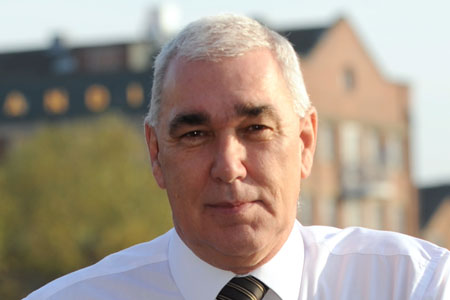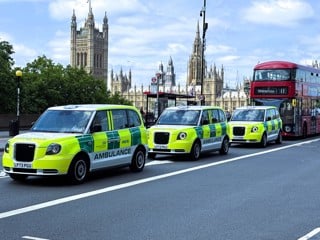This collaborative approach permeates throughout the fleet.
Wiseman sees it as the fleet’s role to remove any hassle from drivers, which has benefits for his own operation.
Drivers now have one phone number if they are involved in an accident and one for breakdown.
They also have a general fleet enquiry number.
Previously they were faced with a choice of 10 phone numbers; now it’s just three.
In addition, calling the accident hotline enables the experts to go through the incident and complete an electronic form, reducing paperwork and time for drivers and team leaders.
“It used to take drivers an hour or two to fill in the form and that was only the basics, so we weren’t getting the full picture,” Wiseman says.
“Now it’s one call to our accident management team and they get all the details in just a few minutes.”
With a new funding method, major vehicle replacement programme and multiple new policies introduced on the fleet, Yorkshire Housing has given Wiseman the challenge he seeks in any new appointment.
As he adds, with a touch of understatement: “It’s been a busy time.”
Accident reduction plan cuts insurance bill by £40,000
Yorkshire Housing (YH) introduced policy updates during 2012 as part of an
accident reduction plan.
Stuart Wiseman investigates every incident, which staff are required to report to the business immediately.
Wiseman interviews drivers following an incident to find out what happened, the
road conditions and whether there were any mitigating circumstances.
He completes a health and safety report for the insurance company which is also used for training.
“We need to reduce our accidents and our insurance bill,” Wiseman says.
“We have put in place our training programme with the help of the insurance company and they have paid for our assessments.”
It’s certainly working: YH’s annual £140,000 insurance bill has already been reduced by an impressive £40,000.
Equally impressive is the impact on accidents: two years ago the organisation suffered one serious incident a week; now it’s more like two minor bumps a month.
“We visit individual teams to talk about loading, vehicle checks and speed limits; we also get the message across to drivers about how much accidents cost our business,” says Wiseman.
He brings in outside agencies, such as the police and Freight Transport Association to talk to drivers, and uses videos to underline the safety message.
“You have to find new ways to say the message otherwise it will slip back.
“Drivers see their van as a mode of transport.
“But we tell them it is part of their toolbox – it’s essential to doing their job.”
YH operates a dual policy on damage recharge. Drivers under the age of 25 pay half of the company’s £500 excess in the event of an at-fault
incident. Everyone else pays the full excess on any second fault incident within a two-year period.
This policy was introduced last year after consultation with YH’s consultative group which includes a number of drivers.
Wiseman says it’s important to carry out the threat to spread word of mouth among the drivers, which ultimately has the biggest impact on behaviour.


















Login to comment
Comments
No comments have been made yet.